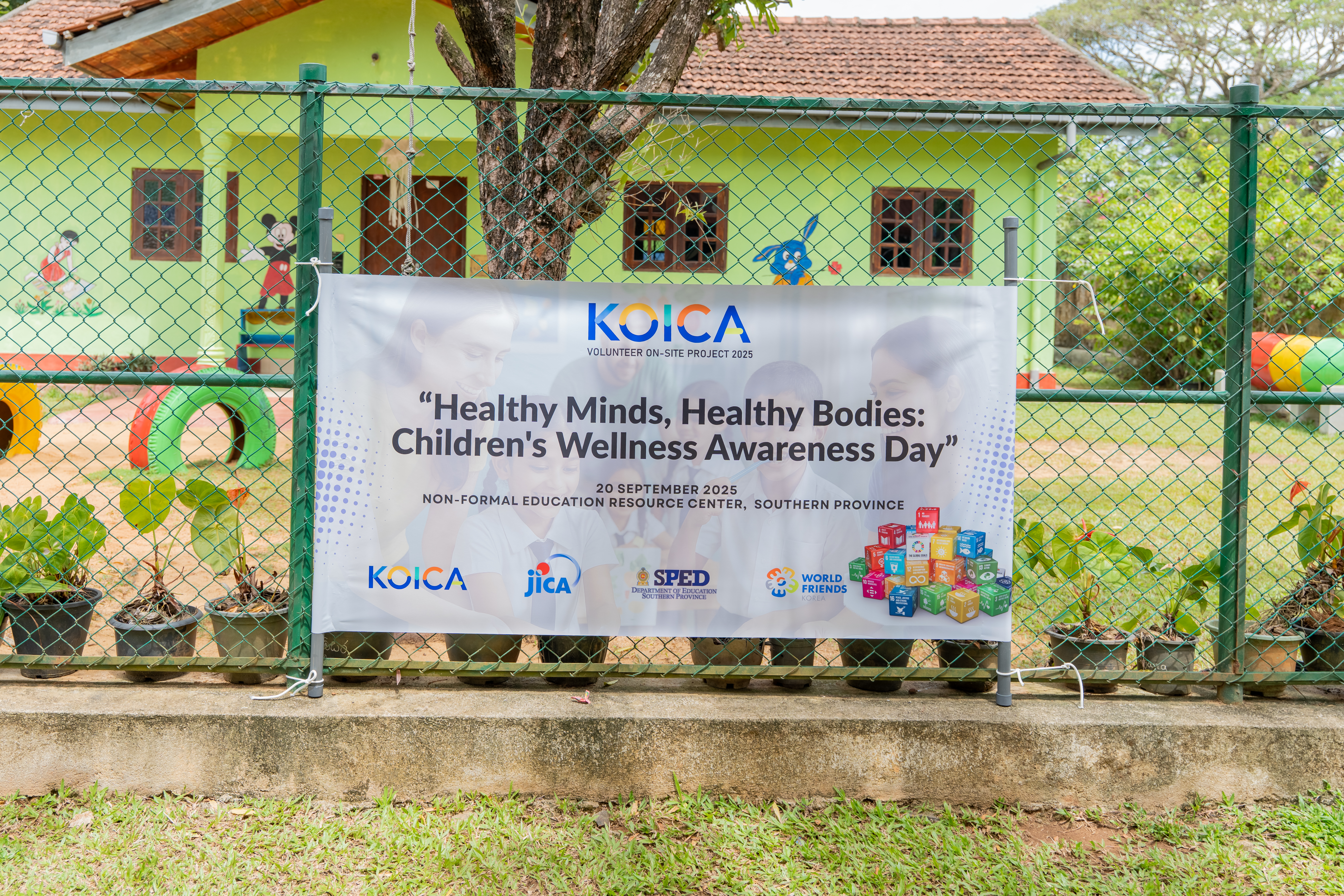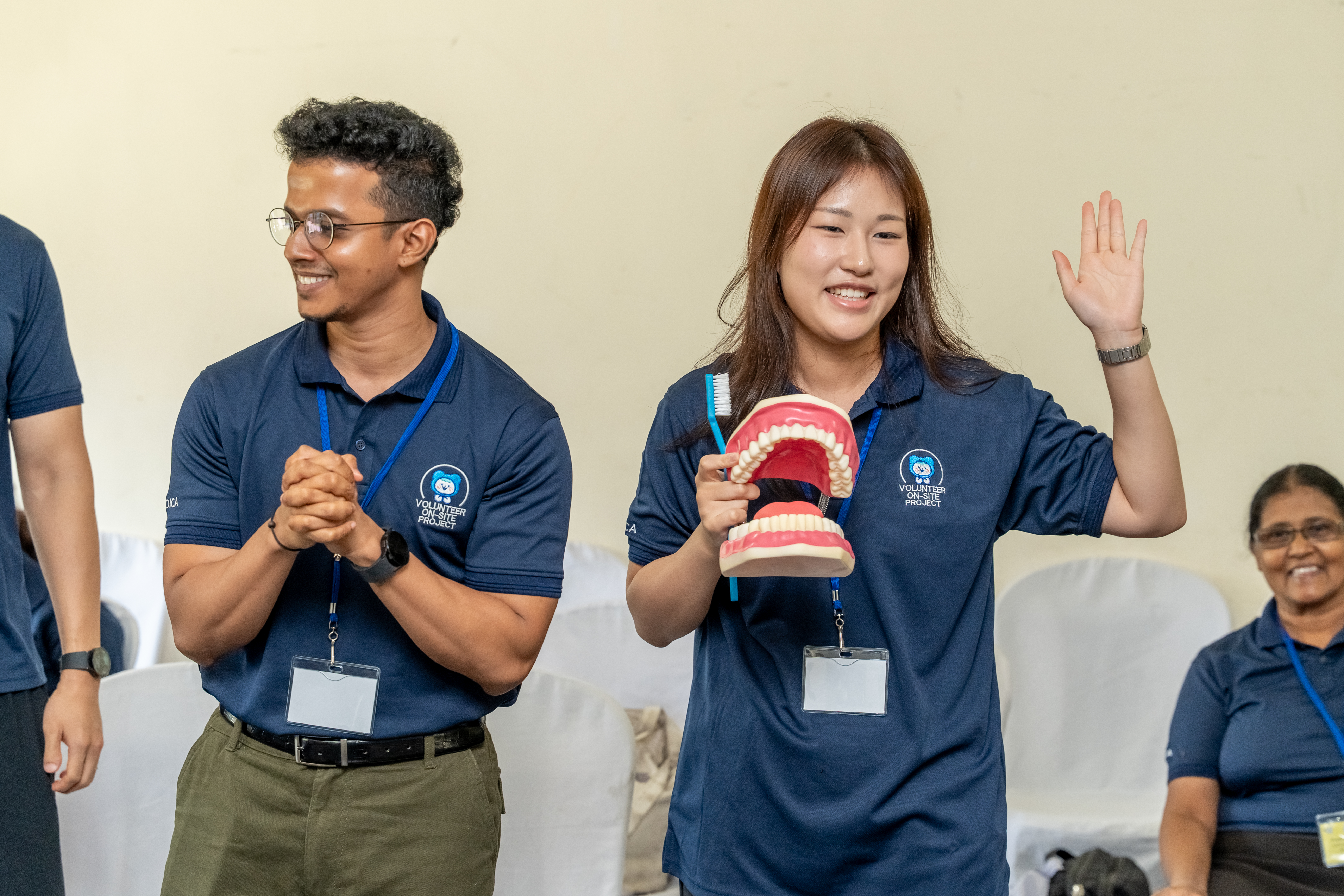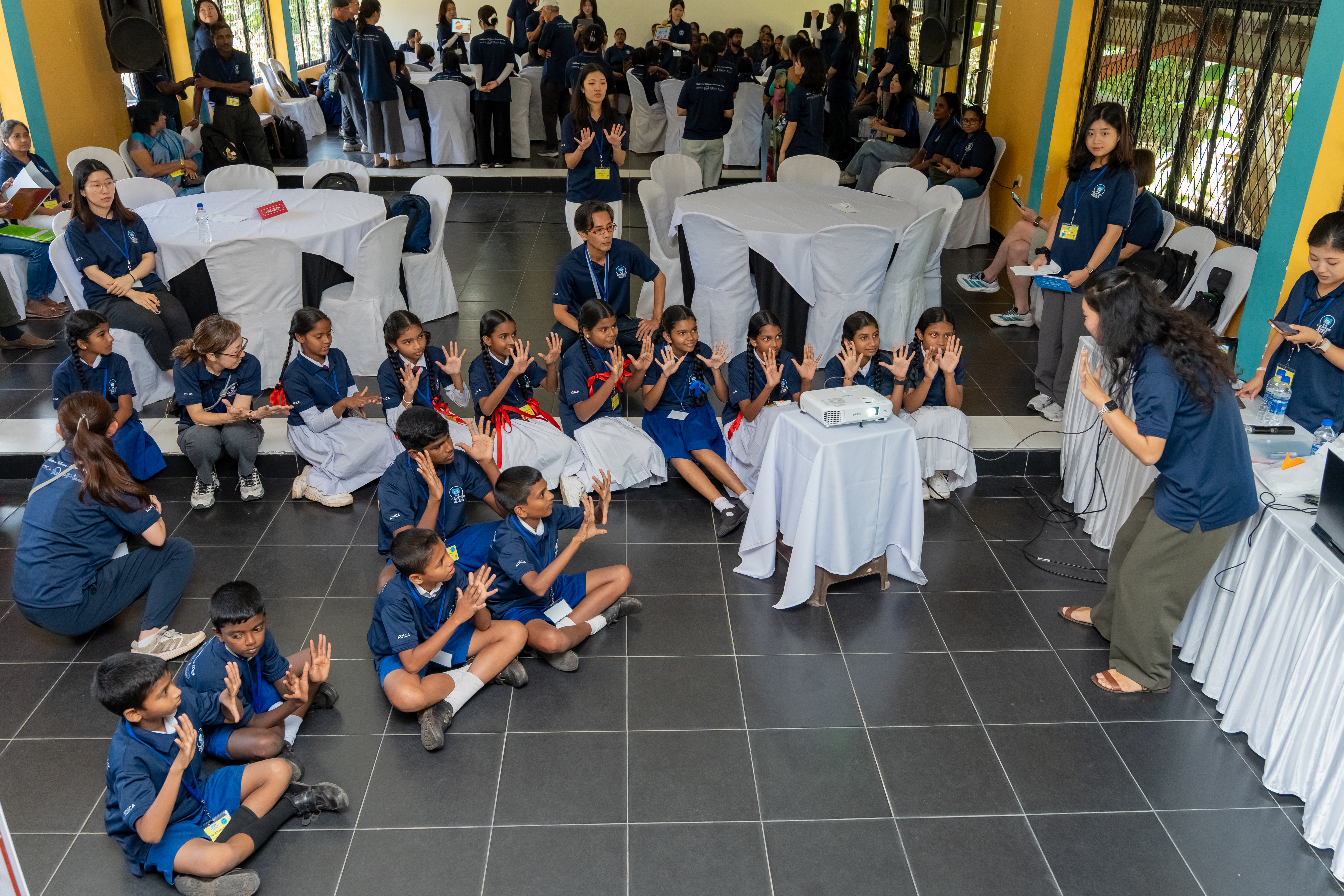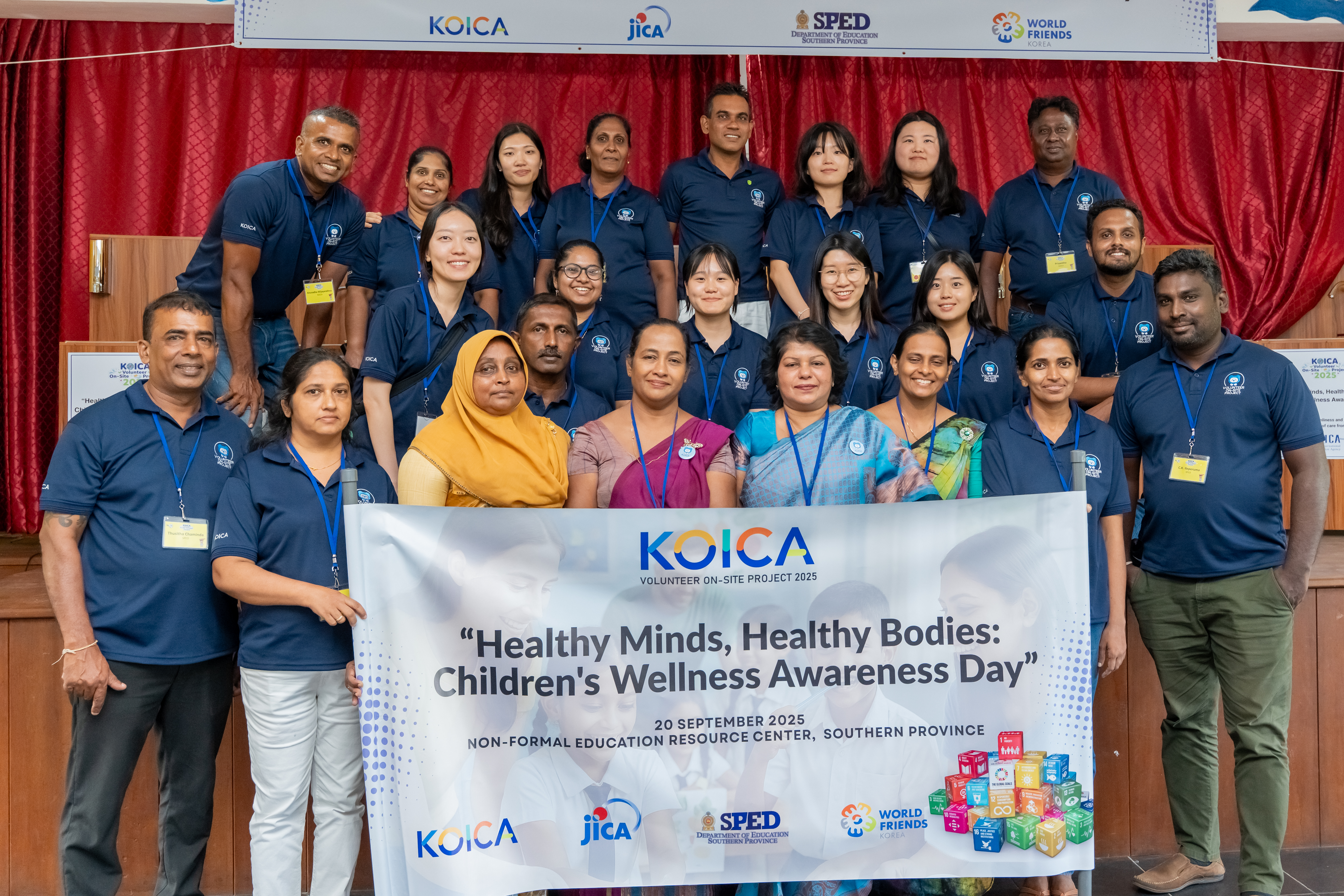I was glad to attend the Healthy Minds, Healthy Bodies: Children’s Wellness Awareness Day 2025 event held at the Non-Formal Education Resource Center in Galle, Sri Lanka, last Month. The event was organized by the Korea International Cooperation Agency (KOICA), Sri Lanka, in collaboration with the Japan International Cooperation Agency (JICA) and the Southern Province Education Department (SPED). The event was a dynamic event featuring health, learning, and cultural connections.
Approximately 100 participants attended the event, including members of the Korean Overseas Volunteers (KOV), the Japan Overseas Cooperation Volunteers (JOCV), students from five local schools in Southern Province, Parents and Teachers, and KOICA Staff. The main purpose of the event was to raise awareness of hygiene and healthy eating habits. The enthusiasm and the spirit of the event were truly inspiring.

The event began with a boost of speeches by local delegates and KOICA Sri Lanka’s Country Director, Ms. Lee Yoo Li. As an Honorary Reporter, her words resonated deeply with me. She spoke about hygiene and nutrition, trust and respect, and encouraged children to take care of their own health. Self-care, personal responsibility, and overall well-being are deeply rooted values in Korean society and education, and community support is often considered an essential pillar of the country’s national development. Strengthening children’s self-esteem and dignity is not only a family priority but also a cultural norm in Korea. It has been demonstrated through public health campaigns, school programs, and the efforts of organizations like KOICA. It has become clear that KOICA’s goal is to foster mutual relationships beyond development by creating human connections.
The Director of the Southern Province Education Department, Ms. Chithra Bamunusinghe, stated her gratitude for KOICA’s continued support and emphasized the importance of Korean volunteers in the health and education sector in Sri Lanka. KOICA’s presence reflects Korea’s long history of international cooperation and civic engagement, and highlights that volunteerism is not simply a duty but also a cultural value rooted in self-discipline, compassion, and lifelong learning. These ideas are disseminated globally through KOICA, fostering development, trust, and long-term relationships among communities.

One of the most memorable moments of the day was seeing the Korea Overseas Volunteers in Action. They conducted fun and interactive sessions on hand and mouth health, using games and storytelling to engage with children. I witnessed how the groups of students learning proper handwashing techniques, mouth cleaning techniques, and their enthusiasm were infectious. I realized how small habits can lead to big changes and how much fun parenting can be through watching how Koreans used to educate Sri Lankan children with this initiative.
A nutrition session by Dr. Amila Chandrasiri was also an unforgettable experience. Parents and children alike listened intently to her explanations on how to identify healthy foods and maintain a balanced diet. It was a practical, meaningful, and enriching opportunity. His message resonates well with the Korean perspective, which emphasizes preventative care, a balanced diet based on traditions, and the importance of raising families as a unit. In Korea, nutrition is not simply a health issue. It’s a cultural value reflected in school lunches, public campaigns, and community programs that promote lifelong healthy habits.
To further emphasize the importance of a balanced diet, students were provided with a hearty Korean lunchbox, which was both delicious and an educational experience. The meal included steamed rice, Korean Omelet with eggs and seafood, warm and nutritious soup, and of course, Kimchi, a popular fermented vegetable dish in Korea known for its probiotic benefits. Each ingredient reflected the harmony of the traditional Korean diet, which emphasizes a balance of grains, proteins, vegetables, and fermented foods to support digestion, immunity, and overall well-being. Sharing this meal wasn’t just about nourishing the body. It was a cultural exchange that emphasized the value of Korean food in promoting health from a young age.

After the event, KOICA distributed portable washbasins and hygiene kits to the students and schools. It was an unforgettable moment for me to see the children smiling brightly as they received their school bags and festival bags along with the hygiene packs. It wasn’t just a gift. It was a tool for change, a symbol of care, a reminder that someone believed in their future.
As an Honorary Reporter and someone who is embracing the Korean culture, I deeply empathized with the purpose of the day. KOICA’s work in Sri Lanka isn’t simply about aid. It’s about partnership, respect, and shared development. Every conversation, activity, and laughter reinforces the idea that we exist to learn from each other and grow together.

The event was a wonderful reflection of Korea’s commitment to global development and cultural exchange. I left Galle with the conviction that KOICA’s presence in Sri Lanka will bring real and lasting change to every child, every school, and every community. In Korean society, these efforts are deeply rooted in the spirit of justice, a cultural concept that embodies compassion, connection, and mutual consideration. KOICA’s activities reflect how Korea, as a nation, shows warmth and solidarity beyond borders, developing communities through education, health, and humanity, and fostering meaningful partnerships
How about this article?
- Like0
- Support0
- Amazing1
- Sad0
- Curious0
- Insightful0


